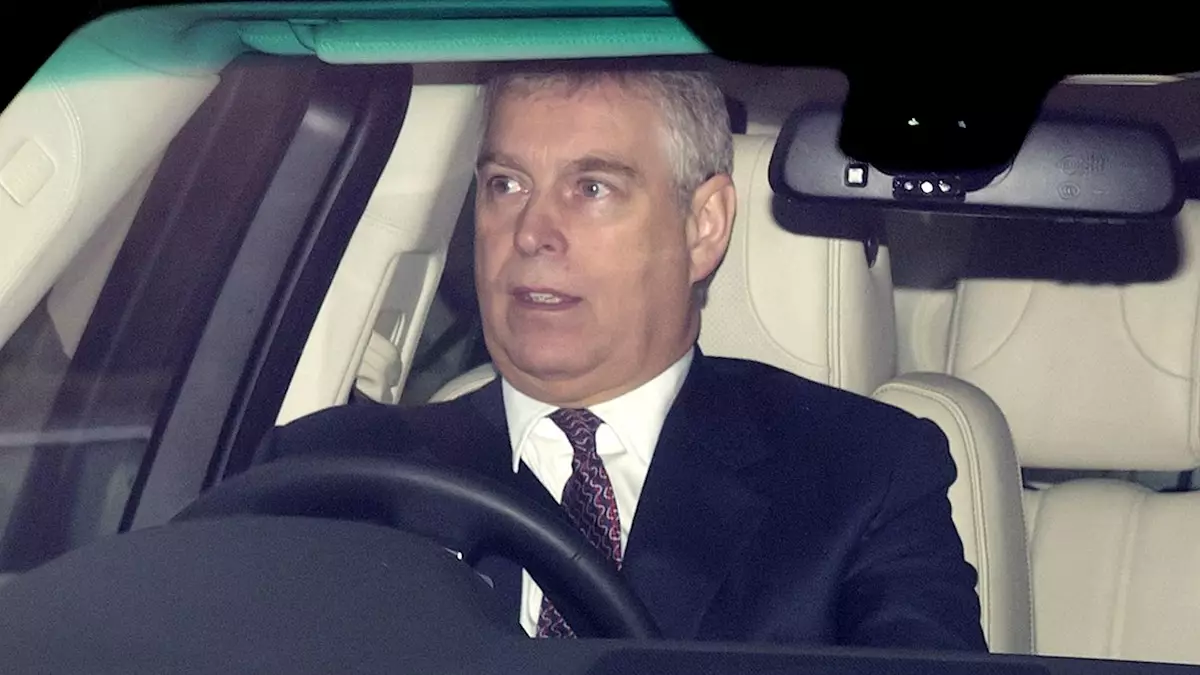In a notable absence this festive season, Prince Andrew, the Duke of York, will not attend the King’s pre-Christmas lunch at Buckingham Palace, as reported. This annual gathering, characterized by its intimate atmosphere, typically includes a wider circle of royal family members. However, Andrew’s exclusion reflects ongoing controversies that have reshaped his relationship with the British royal family and the public.
King Charles III’s pre-Christmas gathering is a time-honored tradition, replete with familial ties and holiday spirit. Set to host approximately 70 guests, the event usually offers a glimpse into the inner sanctum of the monarchy, albeit behind closed doors. Traditionally, family members arrive at the palace, presenting a picture of unity and celebration; however, this year’s arrangement starkly highlights the divisions within the royal family, particularly concerning Andrew.
The absence of Andrew not only underscores typical family dynamics but also signals a broader shift in royal presence and representation. Several factors contribute to this decision, not least the ongoing implications of Prince Andrew’s past associations and scandals that have embroiled him in controversy over recent years.
The fallout from Prince Andrew’s past actions has cast a long shadow over his royal duties. The latest revelations involve allegations connecting him to a Chinese businessman, Yang Tengbo, who has been accused of espionage. Reports surfaced that Yang had close ties with Andrew, raising eyebrows and concerns within royal circles. Although Yang insists on his innocence, claiming his actions were lawful and above board, the mere suggestion of impropriety has made Andrew’s presence at royal functions particularly sensitive.
This is not the first time Andrew has made headlines for unfavorable reasons. His 2019 BBC Newsnight interview, where he attempted to defend his relationship with convicted sex offender Jeffrey Epstein, backfired spectacularly, leading to his departure from public royal engagements. The subsequent settlement to Virginia Giuffre, who alleged sexual assault, did little to repair his image or public standing.
As the royal family navigates the turbulent waters of public scrutiny, it becomes increasingly important to evaluate how past actions influence present engagements. King Charles has reportedly been briefed by intelligence services regarding the implications of Andrew’s associations, suggesting that the decision to exclude him from gatherings is not merely a familial judgment but a calculated move to protect the institution’s integrity.
By opting to host Andrew’s ex-wife, Sarah, Duchess of York, while leaving the Duke out, the King may be signaling an intentional move to separate the future of the monarchy from the murky past associated with Andrew. It demonstrates a desire to focus on more pristine associations while allowing space for his daughters, Princess Beatrice and Princess Eugenie, to fulfill their family obligations amidst their new in-law arrangements.
Prince Andrew’s future within the royal family appears increasingly delineated. With every public notice of his absence, the narrative surrounding his royal identity grows more tenuous. While he may join high-profile family events like the King’s coronation or Christmas services, the perception of his status remains marred by scandal.
Spending the holidays at Royal Lodge in Windsor, alongside Sarah and away from the broader royal festivities, marks a significant moment in Andrew’s evolving role. The royals are clearly adapting to the modern societal landscape, highlighting an awareness that public sentiment can have profound implications on tradition and duty.
The exclusion of Prince Andrew from the King’s pre-Christmas gathering is emblematic of the royal family’s attempts to recalibrate its narrative in light of past controversies. As the monarchy continues to evolve, it becomes apparent that the notion of unity may be filtered through the lens of public perception and individual accountability, raising questions about the future role of figures like Andrew in royal engagements.

